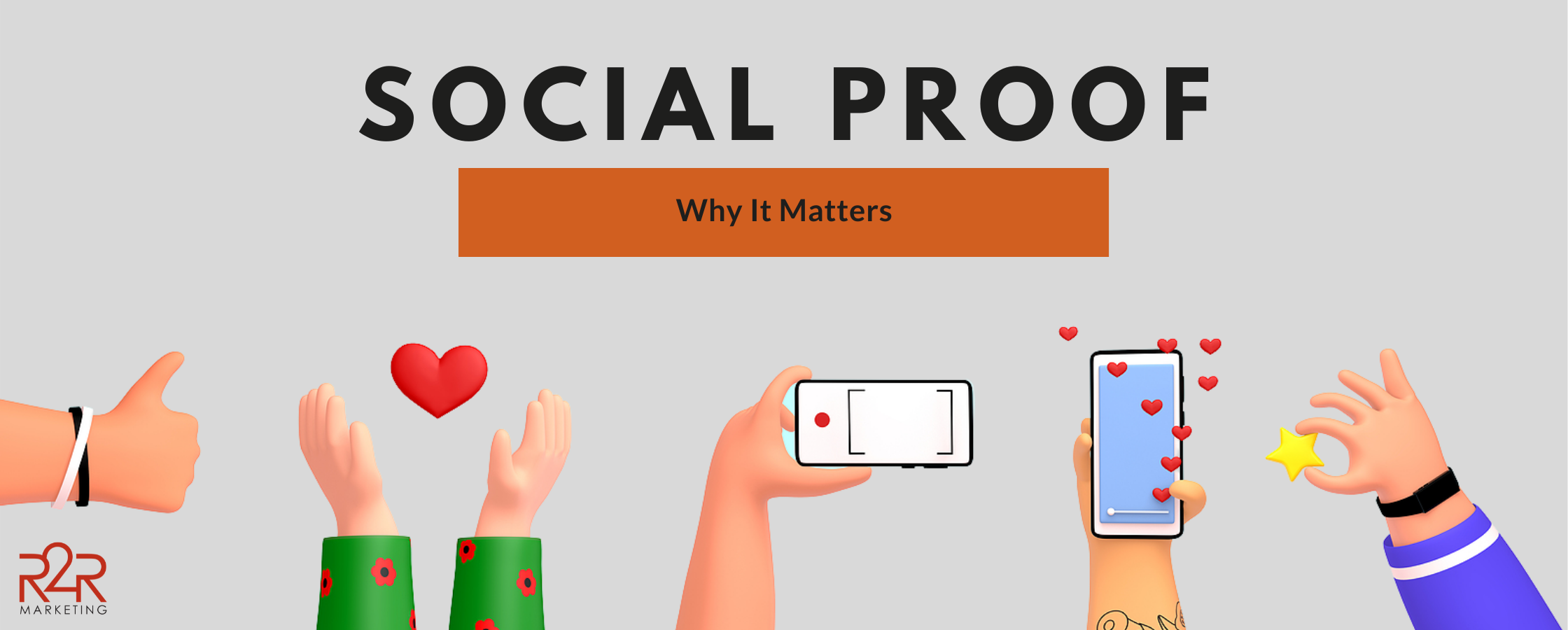Gone are the days when consumers might blindly trust the word of a salesperson. Social proof is now essential to marketing your brand.
Wait. What’s social proof?
It’s the theory that we tend to adopt the opinions and actions of others, especially people we trust. We consider a behavior “more correct” when we see others doing it, and we assume those around us have more knowledge about a situation than we do.
There are several types of social proof you see almost everywhere:
- Case Studies
- Testimonials
- Reviews (Google Places, Yelp, Facebook, etc.)
- Social Media (Shout outs and tags from customers, your page’s current number of followers, etc.)
- Data & Milestones (“We reached 5 million users today!”)
Why is it important?
According to a Social Proof Statistics report by TrustPulse, shoppers aren’t picky about whose advice they’ll take. It can be anyone from family, friends, celebrities, or even total strangers (who aren’t celebrities). For example:
- 91% of millennials trust reviews as much as recommendations from friends and family.
- The average consumer reads 10 customer reviews before making a purchase decision.
- Online product reviews can increase conversion rates by 270%.
- Customers would spend 31% more on a business with good reviews.
We’ve reached a point where social proof is expected by consumers, which is why it’s essential for online businesses.
What can I do?
You don’t have to be an “influencer” to win this game, but you do have to stay on top of it. Tailor your social proof by doing things like asking for reviews, posting testimonials, publicly celebrating your victories, and replying appropriately to both positive and negative comments.
It can be challenging to keep up this pace while also maintaining the exceptional service you hope to be known for. That’s where we come in. If you’d like help maintaining your social proof, give the pros at R2R Marketing a call. (Feel free to reference our reviews, testimonials and social media. We know you will anyway.)





